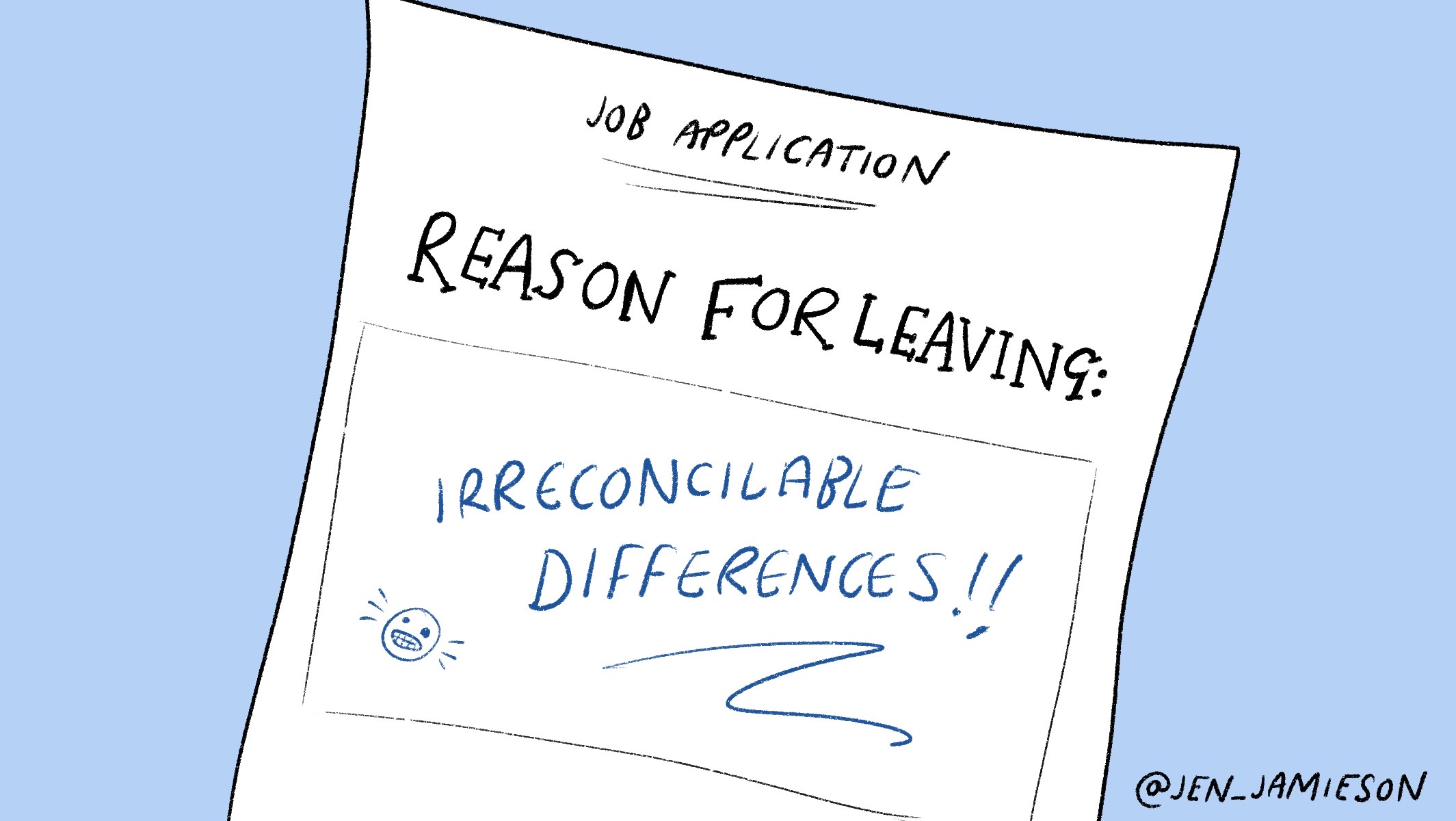Dear We Are Teachers,
I finally decided to leave a toxic principal and school. I’m applying to a new school in a new district. In the spot where it asks “Reason for Leaving” on the application, I’m wondering what I should put. I’m thinking either “Seeking leadership that reflects my educational philosophy” or “Needed improvement in work culture.” Which would you recommend?
—PEACE OUT!
Dear P.O.,
First, congratulations to you on leaving a toxic work environment! It takes a lot of bravery and sacrifice to be willing to start over, and I’m glad you’ve decided to prioritize your well-being. Relatedly, I’m a big believer that it’s better for students to learn from happy teachers. Remember: You’re making this move for your future students’ best interests too.
While I was subbing last week, I talked to the principal briefly about how interviews were going for an elementary position. She said they’d chosen a teacher easily because “She still seemed excited about teaching. Some of the others seemed burned out or really jaded from their previous job.” Yes, principals know that sometimes teachers are coming from legitimately terrible leaders and institutions. And some principals aren’t put off by that kind of honesty. But since hinting at not liking your last school carries with it an element of risk, I wouldn’t recommend it.
Here are some ideas I love from teachers in our We Are Teachers Helpline Facebook group (a treasure trove of advice, by the way!):
“I would say, ‘Looking for new opportunities to broaden my teaching experience.’” —C.L.
“Say something like you are ready for a new challenge or something more specific to the new job you are applying for, like I am looking for the opportunity to work with …” —J.A.
“I’ve heard this new district has great initiatives like … and I’d like to be part of a district that has a reputation for achieving …” —C.G.
“When I left my previous district, I used two main reasons: I wanted to be challenged in different ways and I wanted to support a more diverse student population.” —L.A.
In other words, instead of raking up all the negative stuff you’re leaving behind, highlight what you’re looking forward to in the position, school, or district with the opening. It’s still the truth, and it paints you in a much more positive light.
Looking for some interview practice? Check out 3 ways AI can help you nail it. Best of luck!
Dear We Are Teachers,
I’m the department chair for our middle school science team. In January, we had a teacher switch to our team from a math position. He’s a nice enough guy but has a very peculiar quirk of acting like he’s in charge of our team. This in itself would be fine (less work for me!), but the problem is he just gets information wrong. He’ll send out emails with directives that teachers don’t actually have to do, provide the wrong date or info to the group when someone asks a question, or chime in with incorrect science information! I thought he might get the hint after I’ve “replied all” with corrections 15 times this semester, but he appears unfazed. How do I say, “You’re not the boss, dude?”
—The boss, dude
Dear T.B.D.,
My guess: this teacher is feeling a little insecure being in a new department. And unlike most people, who would deal with insecurity by hanging back, listening, and learning the ropes, he appears to be handling it by … taking charge. (An unimaginable approach to my sensibilities, but different strokes, I suppose.)
You need to have a chat with this teacher before the end of the year. Firstly, start with empathy. Ask how the switch is going. Mention that you understand it’s a big transition. Offer that you’re always here to help. Then say this:
“I wanted to talk to you about something. A few times this semester, we’ve had questions come in from teachers or administrators about the science department, curriculum, or textbooks. I appreciate your help in answering, but sometimes you might not have the full context or information from administration. I would hate for any teachers to be confused about whose info is accurate and what tasks they actually need to do. Next school year, would you mind leaving the more administrative-type emails to me? Then, if I’m missing information, you can chime in.”
If he keeps it up next school year, you’ll be able to say you already talked to him about it when you chat with your principal.
It’s an awkward conversation for sure. But more awkward is continuing to have this dude mansplain emails to your team.
Dear We Are Teachers,
Our last faculty meeting for our K-2 elementary school will be in several weeks. Our principal asked us to each create a slide on a group Google Slide to share our favorite get-to-know-you activities and icebreakers for the first day of school that we can revisit during in-service. I’m already dreading the parade of ideas that are inappropriate (family trees), insensitive (asking questions about home life that assume everyone has a stable family), or ask too much of families (having them write a letter to teachers). I know all our teachers are well-meaning, but I wish my principal went over these things to consider before assigning us the slides. Do you have any tips for gently getting teachers to consider these perspectives as they design their activities?
—THE CRINGE IS REAL
Dear T.C.I.R.,
First, I just want to say that I’m glad you’re thinking about the kids and families participating. On their behalf, thank you!
Start by sending this email to your principal:
“Hi Mr./Ms. ____,
I was wondering if I could email teachers some friendly reminders and tips in sharing their first-day activities. Here’s what I had in mind:”
Then, lay out each of your points. Make sure to keep the guideline positive (e.g., “Keep your questions low-risk” instead of “Don’t make students talk about their summers”). For each guideline, explain why it might make kids feel awkward. Then, provide a swap for that type of activity. Check out our article on this exact topic for inspiration!
Hopefully, your principal sees your effort to make back-to-school a positive, inclusive experience for all students and takes action. And if they don’t, maybe you can at least circulate these points among team leads or department chairs so they can disseminate it.
Do you have a burning question? Email us at askweareteachers@weareteachers.com.
Dear We Are Teachers,
I’m in my 10th year of teaching 3rd grade. I used to love the end of the year, but now I find myself dreading it. Not only are there more celebrations—whole-class graduations, individual graduations, in-school parties, out-of-school parties—but every event is just so exhausting and excessive. I find myself having to deal with vendors, clear space so the DJ can set up his station in our classroom, and become the de facto Slide Monitor for the bounce house. Not to mention having to pose in what seems like a thousand pictures instead of being present and actually enjoying my time with students. I love my students and want to celebrate a fabulous year with them. How can I set boundaries around all the crap next year?
—HOW DO I UNSUBSCRIBE?

